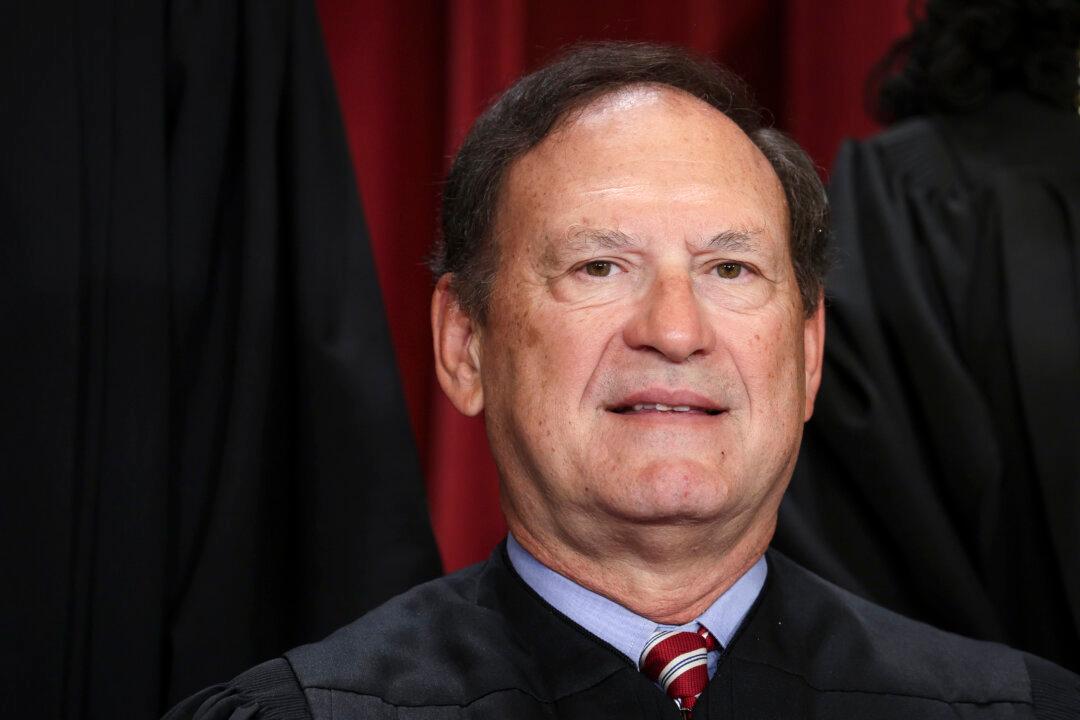Supreme Court Justice Samuel Alito said the high court shirked its duty by rejecting a challenge brought over the White House’s communications with social media companies over political content, a case he described as “one of the most important free speech cases to reach this Court in years.”
Justices Alito, Neil Gorsuch, and Clarence Thomas dissented from the majority in the June 26 decision that the state and individual plaintiffs involved lacked standing to bring speech-related claims to the court.





